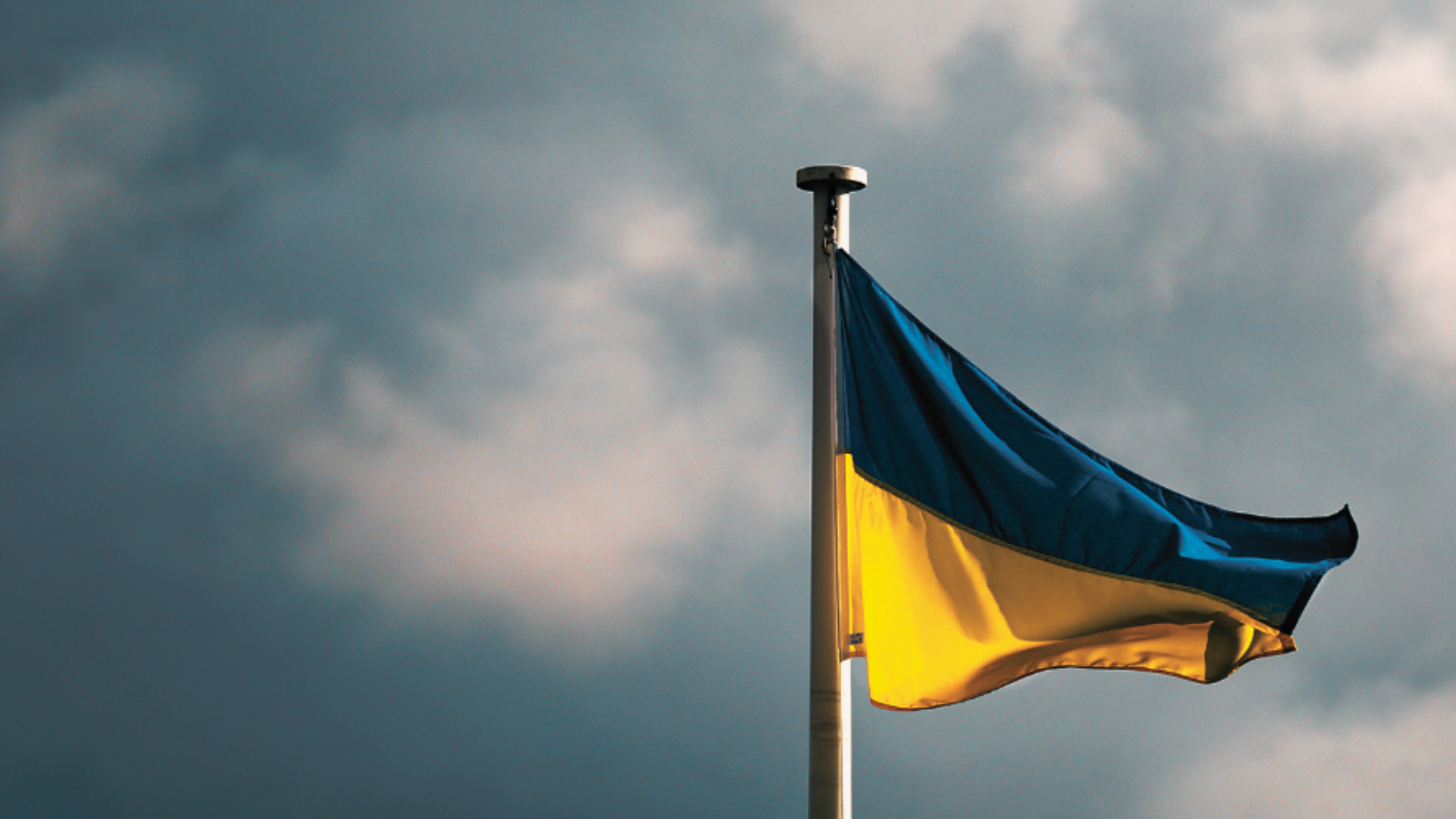What the conflict in Ukraine can teach us about the future of cyberwarfare
The McCourt School’s Tech & Public Policy program hosted a panel of experts to discuss the conflict in Ukraine, the future of cyberwarfare and the importance of public-private partnerships moving forward.
On February 24, 2023, Russian forces invaded and occupied parts of Ukraine. In the year since, tens of thousands of people on both sides have lost their lives, and even more have been permanently displaced. While the physical war has been widely covered by international media, military and tech experts across the world have found key lessons to be learned by the war being waged online.
To discuss changes in the cyber threat landscape, the McCourt School’s Tech & Public Policy (TPP) program hosted visiting TPP Research Fellow Gulsanna Mamediieva, director general on EU integration in Ukraine’s Ministry of Digital Transformation, Adjunct Professor Jeffrey Glick, former senior advisor to the assistant secretary for cybersecurity and communications in the Department of Homeland Security, Adjunct Professor John Gossart, cofounder and CFO of fintech startup GoodWorld, and Tatyana Bolton, security policy manager at Google.
Following introductory remarks from McCourt School Advisory Board member Craig Newmark, who emphasized the importance of cross-sector collaboration and “protecting ourselves and our country from cyber attacks,” the panel, moderated by Dr. Glick, spoke candidly about what the conflict in Ukraine reveals about the future of war.
Mamediieva, a Ph.D. candidate at Kyiv University whose research was interrupted by the war, offered unique insights into how the Ukrainian government was able to protect itself against cyber attacks. “President Zelensky was committed to making Ukraine a ‘state in a smartphone,’ and his focus on digital really helped us to pivot quickly when we realized the urgency of the situation,” she said.
Following Russia’s annexation of Crimea in 2014, members of the Ukrainian government began to focus heavily on cybersecurity and tech policy to make sure they were prepared for the seemingly inevitable future their nation was facing. Mamediieva went on to discuss some strategies the Ukrainian government enacted ahead of the onset of the war, including building and securing cloud storage capabilities, migrating physical records into digital ones and developing the DIIA app to put cybersecurity into the hands of Ukrainian citizens.
In the year since the start of the war apps like DIIA have “transformed the face of warfare” in Ukraine said Mamediieva. Ukrainian citizens are now able to upload all of their personal documentation safely and securely to prevent the risk of losing everything if they are forced to flee, the app also allows them to apply for citizenship in various countries. Mamediieva went on to mention a few other tools that are helping Ukrainian citizens report sightings of Russian troops directly to the government – further decreasing the gap between the digital and kinetic spaces of warfare.
While Ukrainian leaders were extremely receptive to the idea of increasing the nation’s digital footprint, digital advocates in the developing world have faced an uphill battle. Bolton stressed the importance of building “cyber resilience” worldwide because “we currently have a system of cyber-haves and cyber-have-nots. Those ‘have-nots’ can pose a huge risk as targets in a conflict, so developing global cyber equity is paramount.”
Developing public-private partnerships
Even before the war began, governments, companies, civil society groups and countless others have supported the Ukrainian people and their institutions. In the years following the Russian annexation of Crimea, many private companies worked to fill the technological gap that Ukraine found itself in, understanding that, due to its’ location, Ukraine played a unique role in maintaining balance in the region.
Since the start of the war these organizations have increased their efforts ten-fold. Google, for example, donated 50,000 Google Workspace licenses to the Ukrainian government, developed rapid Air Raid Alerts systems for Android phones in the region and supported refugees, businesses and entrepreneurs across the country. Bolton noted that taking a stand like this has massive policy implications and often leaves decision-makers with the policy choices around how to ensure the rights and security of all of their users across the globe.
“The policy implications are fascinating. Do you remove state-run media from [Google]? When do you choose to make that decision? Is it only true in times of conflict? And if so, how do you decide which side to take? The policy implications of these decisions are endless and immense.”
Tatyana Bolton
The choices the Ukrainian government chose to make in the days leading up to the war were difficult but have saved countless lives and futures. As the kinetic war in Ukraine continues to unfold there is no doubt that tech policy leaders from across the world will be watching with a keen eye to make sure that global citizens remain safe through the next inevitable cyber attack.
- Tagged
- Tech & Public Policy
